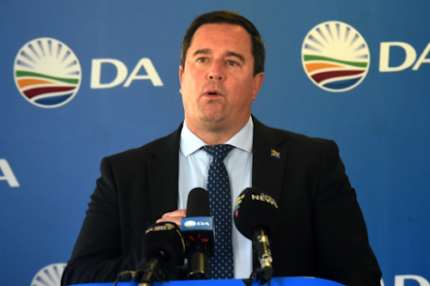South Africa’s economy is reeling from the impact of a series of misguided policies, which analysts say have led to a significant contraction in economic activity. The consequences of these policies are being felt across various sectors, exacerbating unemployment, reducing foreign investment, and stifling economic growth.
Recent data from Statistics South Africa reveal that the economy shrank by 2.5% in the first quarter of 2024, marking the third consecutive quarter of decline. This downturn is attributed to policy decisions that have undermined investor confidence and hampered business operations.
“Policy uncertainty and regulatory overreach have created an environment of instability,” said Dawie Roodt, Chief Economist at Efficient Group. “Businesses are reluctant to invest, and this has had a ripple effect on the entire economy.”
Key among the controversial policies is the government’s aggressive land expropriation initiative, aimed at redistributing land without compensation. While intended to address historical inequalities, this policy has unsettled both local and international investors, leading to capital flight and a freeze on new investments in the agricultural and property sectors.
“The land expropriation policy has caused significant anxiety among investors,” noted Peter Attard Montalto, Director at Intellidex. “The lack of clarity and the potential for arbitrary seizures have made South Africa a less attractive destination for investment.”
Additionally, stringent labour laws and the implementation of the National Minimum Wage have been criticized for increasing the cost of doing business. Small and medium-sized enterprises (SMEs), in particular, have struggled to cope with higher wage bills, resulting in layoffs and business closures.
“The minimum wage policy, while well-intentioned, has had adverse effects on SMEs,” explained Lumkile Mondi, a senior lecturer at the University of the Witwatersrand. “These businesses are the backbone of our economy, and their struggles have amplified unemployment and economic stagnation.”
The energy sector, too, has been plagued by policy missteps. Ongoing issues with Eskom, the state-owned power utility, have led to frequent power outages and unreliable electricity supply. Efforts to restructure Eskom and introduce alternative energy sources have been slow and fraught with bureaucratic delays.
“Eskom’s instability has had a crippling effect on industry and commerce,” said Ted Blom, an energy expert. “Reliable energy is fundamental to economic growth, and the persistent power crises have severely hampered production and economic activity.”
In response to the growing economic crisis, the government has announced a series of measures aimed at reversing the downturn. These include plans to ease regulatory burdens, incentivize investment, and fast-track reforms in the energy sector. However, scepticism remains about the effectiveness and implementation of these measures.
“Announcing reforms is one thing, but the real challenge lies in execution,” said Iraj Abedian, CEO of Pan-African Investment and Research Services. “The government needs to demonstrate a genuine commitment to creating a stable and business-friendly environment.”
The economic contraction has also had social ramifications, with rising unemployment and poverty levels leading to increased social unrest and protests. The need for effective and sustainable economic policies has never been more urgent, as South Africa seeks to navigate its way out of the current crisis and lay the foundation for long-term growth and stability.
As the nation grapples with these challenges, all eyes will be on the government’s ability to implement meaningful reforms and restore confidence among investors and the business community. The future of South Africa’s economy hangs in the balance, with decisive action needed to reverse the damage caused by bad policies and steer the country towards a path of recovery and growth.
